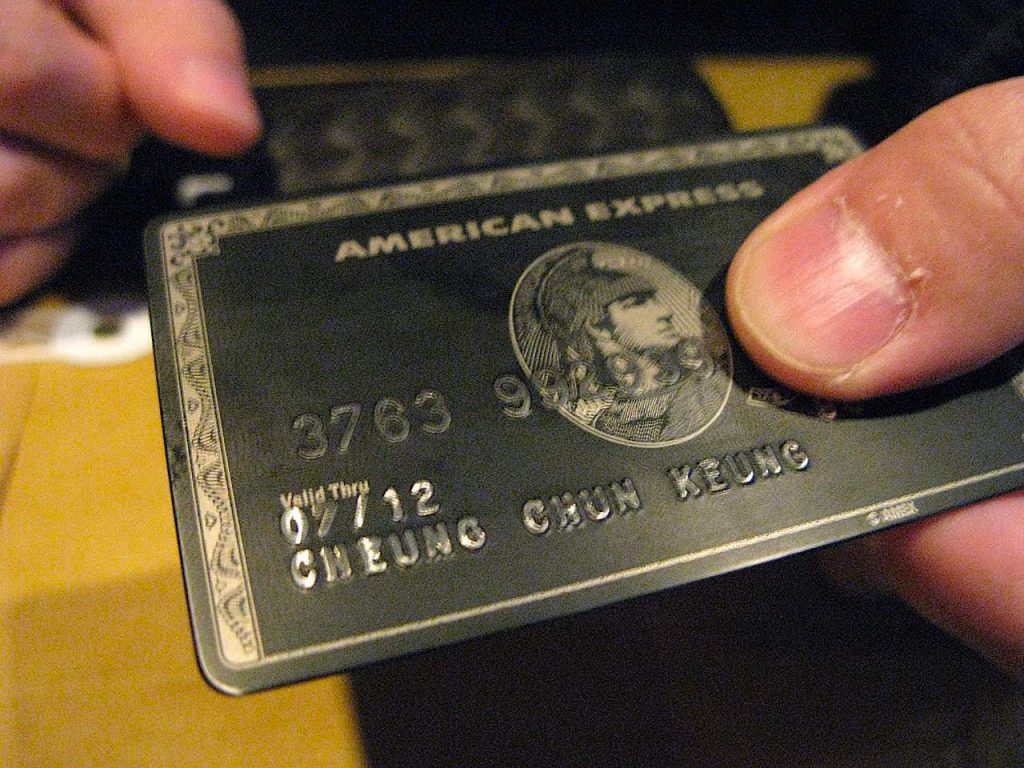
12 basic tips to help you learn to manage your money wisely
The best practices for managing your money are to do these 5 things: save 100% of everything you earn to invest; reinvest all the profits from your shares; never spend more than you earn; avoid financing with small installments and high interest; investigate public securities, investment funds or shares.
Are you having trouble managing your money and making it work for you? In times of crisis, everything becomes even more complicated, right?
You've probably already read or heard that you just need a little organization to put everything in order. The problem is that organizing finances is not always easy, even more so when we have habits that make us spend more and more.
So how do you best manage your money?
To better manage your money, you must first get rid of “toxic” behaviors. That is, those attitudes that do nothing to help your bank account.
So, we have separated some lessons that can be quite useful. Check out some basic rules that can help you!
1. Save 10% of everything you earn to invest

There is a point of view advocated by many billionaires and very financially successful people, which is this: “pay yourself first.”
Before someone uses the phrase as an excuse to mislead others, it is good to explain it well.
The idea is to set aside at least 10% of what you earn immediately, before looking at your accounts or leisure items. Did you get R$100.00? Set aside R$10.00 right now to invest! It's that simple!
This attitude, in addition to ensuring the construction of a wealth, creates a very healthy financial habit. And it doesn't think that you're going to starve to death by separating the 10% from the money you earn.
On the contrary, sometimes starting the month a little tighter forces you to be creative, whether it is when it comes to saving or when it comes to creating opportunities that generate new income.
Before moving on to the next item, one caveat: this money must be invested and not simply “set aside.” It is important that you make that amount work for you.
To do this, it is worth studying the different market possibilities, from fixed income to the stock market, and choosing the investment that best suits your profile.
Note: We talked more about investments in item 5.
2. Reinvest all the returns on your investments

Let's go back to the 10% we talked about in the previous point. If you think that in the future they will be used to turn them into trips, cars or whatever item is your dream of consumption, you are mistaken. All the profit must be reinvested.
This is where you might start to think: but what's the point of having that money if I'm not going to use it? … Calm.
The idea is to build wealth and not just save a certain amount each month. Your wealth is your real wealth, the rest is an illusion. It is useless to have a huge salary or profit in your company if at the end of the year you have nothing saved.
People with a wealth mindset are always looking for alternatives to enrich their wealth so that they can live off the returns in the future. If you have the discipline to invest and reinvest your money, in a few years you will not need to worry about issues such as social security, which is not necessarily a safe alternative for retirement.
3. Never spend more than you earn

This is obvious advice, right? Well, not so much. Most people know that they shouldn't spend more than they earn, yet they continue to make the same mistake over and over again.
There are many different excuses and justifications for repeating the mistake, but keep in mind that sooner or later, it is necessary to face reality.
Going into credit card debt month after month only makes you push your problems aside. You may not be in dire financial straits yet, but such behavior simply takes away your freedom of choice as you will be living in a bind every month-end.
Think about it: What if you wanted to invest in a new business idea? What if something unexpected happens to your house or car? Or worse, what if you have unexpected medical expenses? Nobody likes to wish for bad things, but it's good to have a plan B in case they happen.
At the end of the day, the only expenses that are really necessary are housing, food and transportation. And everything that falls outside of those three can be carefully planned to fit into your budget, without having to go into debt.
4. Avoid financing in small installments and high interest rates

When we want a consumer good, we are often attracted by low-payment financing. However, it is good to open our eyes. Most of the time, the installments represent high interest rates.
Just put yourself in the shoes of the company that is selling the product or service: they need to make a profit and financing is nothing more than a loan. In other words, it needs to be advantageous for the lender as well, otherwise the negotiation would be pointless. So, stay alert! Generally speaking, the less time it takes you to get out of a loan, the less interest you will pay. Not to mention that this will allow you to manage your money better.
Even if financing is short, think carefully before dividing a purchase into installments or taking out a loan: these should always be the last alternative. The always reliable payment in cash continues to be the best option, even for those who usually have difficulties organizing their accounts.
5. Look for information on public securities, investment funds or shares

If you follow the recommendation of the first tip of saving 10% of all the money you earn, you will soon have a good amount to invest. In this case, it is good to start looking for ways to use the money right now.
To make your search easier, we have separated some initial information that may help you:
Public securities
Public bonds of the National Treasury are part of the fixed-income market. They are one of the ways the government raises resources to finance its activities, including education, health and infrastructure.
In addition to offering a higher return than savings, another great advantage is that it is possible to invest in securities that always pay above inflation. This way, your money will never lose value.
Investment funds
An investment fund is a type of financial instrument. Each fund is formed by the union of various investors (contributors) who come together with the aim of investing in a series of assets, which may include fixed-income securities, commodities, exchange securities, shares, among others. Generally speaking, the more diverse the fund, the lower the risk you run.
Actions
Shares are small fractions of a company traded on the stock exchange. The money invested in shares represents the equity in the company and is used to purchase equipment and raw materials, pay employees, invest, etc.
That is, by buying a share, you become a partner in the company that issued the share. This means that you will take on the risks of the business, having a share in both the profits and the losses of the organization. The price of shares is determined by supply and demand: the more people want to buy shares in a corporation, the higher the price goes. Thus, it is possible to sell and make a profit on shares.
6. Don't buy a beach house or a luxury car

Unfortunately, these items only bring expenses and take money out of your pocket faster than you expect. The dream of a beach house, for example, often turns into a nightmare: there is a lot of maintenance and little return.
Most people end up using it only in the summer, however, they fail to rent out the residence in the off-season. The result is a series of expenses, including taxes, monthly bills and measures to keep the property in good condition.
The same thing happens when you trade in your current car for a higher-value vehicle. Insurance costs will skyrocket, maintenance and parts are more expensive, and sometimes fuel consumption will go up as well.
Not to mention the extra costs you may incur to ensure safety – both yours and your vehicle’s – including always leaving your car in a closed parking lot.
7. Beware! Be careful with your credit card

Without a doubt, credit cards are one of the biggest villains in people's financial lives. Therefore, if you want to manage your money efficiently, you need to be careful with them.
What many people don't realize is that when you make a purchase with a credit card, you're actually creating a debt to pay off later. In the case of purchases divided into installments, it's a debt that will last a long time!
This is dangerous for two reasons. The first is that at the end of the day, you are only postponing a payment that should have been made at the time of purchase, losing control and focus of your investment, as this stimulates other short-term expenses.
The second reason is that the possibility of compromising your income in the coming months is high, and therefore, it can harm your future expenses that are essential, putting your situation in a scenario in which you will need to withdraw money from your reserves or incur a debt with interest on the card itself.
Remember that credit card interest rates are one of the highest these days, so your priority should be to avoid them.
8. Avoid superficial purchases

Many people have the habit of buying things they don't need, and the result is unnecessary purchases that compromise the monthly budget.
Therefore, before buying anything, think about whether you need what you see in front of you; think about whether it is something essential and whether there is no other alternative to replace that purchase with something you already have.
We know that it is often difficult to resist the temptation to buy new things, but at this time it is necessary to think about your financial goals, which are something much bigger. By doing so, you will be much more likely to achieve your dreams.
9. Have financial goals

One of the most natural ways to stay in control and manage your money correctly is to set a larger goal as something that must be achieved. This way you will condition your mind that all the effort will be worth it.
So, there is nothing wiser than transforming your dreams into these goals. For example, how about setting goals such as: changing your car, buying an apartment or taking that trip of your dreams.
This way, the chances of your planning being correct are much greater, and when you give up an unnecessary expense, it will be much more pleasant, because you will know that it is for a good reason.
10. Transform a variable expense into a fixed one

Another big villain in our financial life is variable expenses, that is, those that were not set with a limit. For example, a beer with friends, a Friday lunch with colleagues at a more expensive restaurant, and so on.
The big problem with this type of expense is that you never know the exact amount at the end of the month and there are cases in which they exceed the limit you imagine, because there is no control and there is no idea of what the ideal amount is to not compromise your budget.
Therefore, make these expenses fixed and keep track of them. For example, if you define that you will spend a maximum of R$200 per month on going to bars and restaurants, you will need to monitor the progress of these expenses and cancel invitations when these types of expenses reach the value that was established.
11. Avoid carrying a lot of money in your pocket

It is good for you to know that carrying cash is a great temptation, as it facilitates the impulse to spend that any human being has, including buying things that are not necessary.
Therefore, the ideal is to only carry enough money for basic daily expenses in your wallet, such as food, transportation and eventual emergencies.
That's a good strategy to avoid unnecessary expenses and manage your money wisely.
See? Managing money better isn't a seven-headed monster. With some basic thoughts always in mind, everything becomes easier.
Oh, and keep following this section of entrepreneurs, because every Wednesday we will have news in this area!



